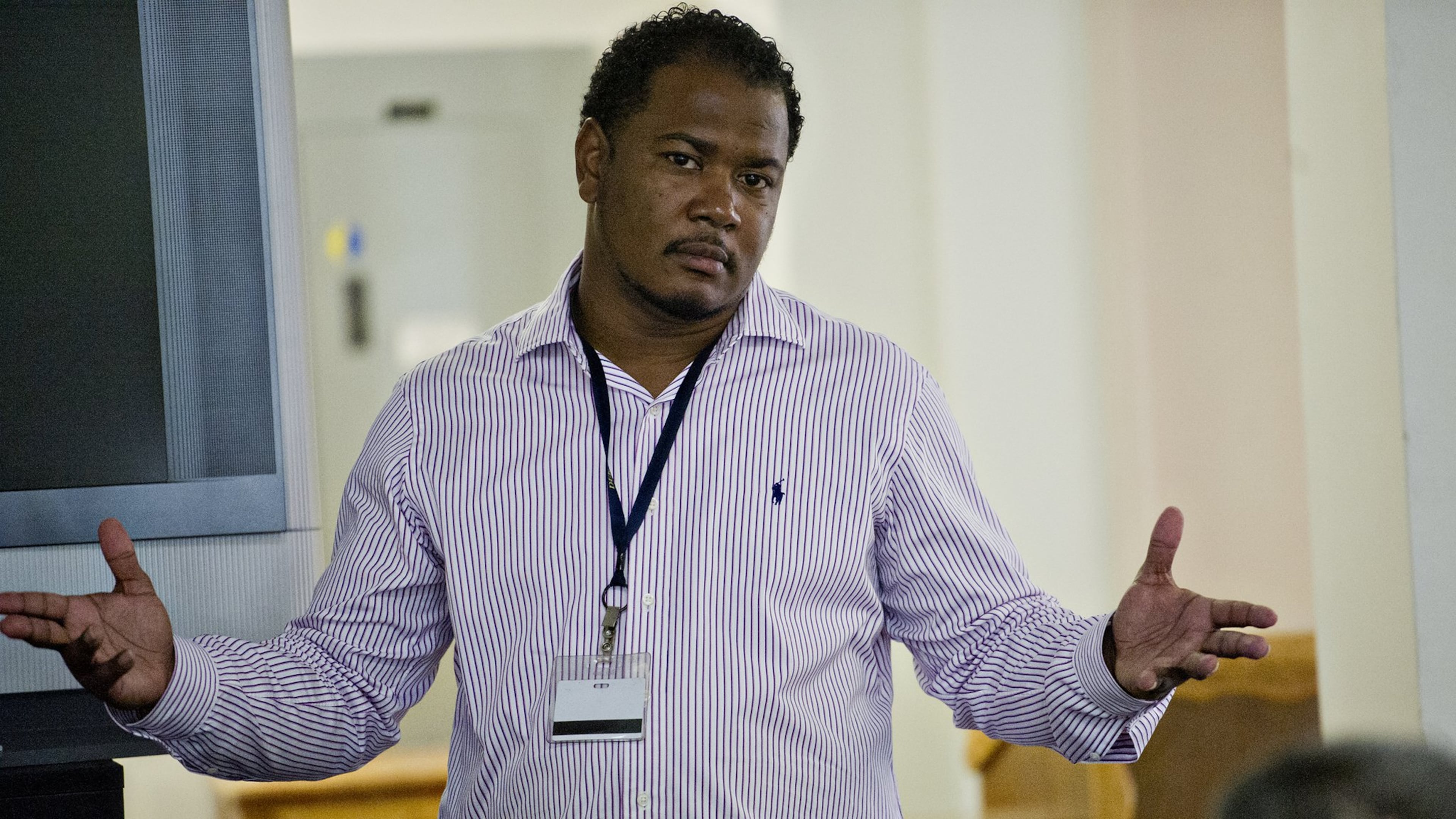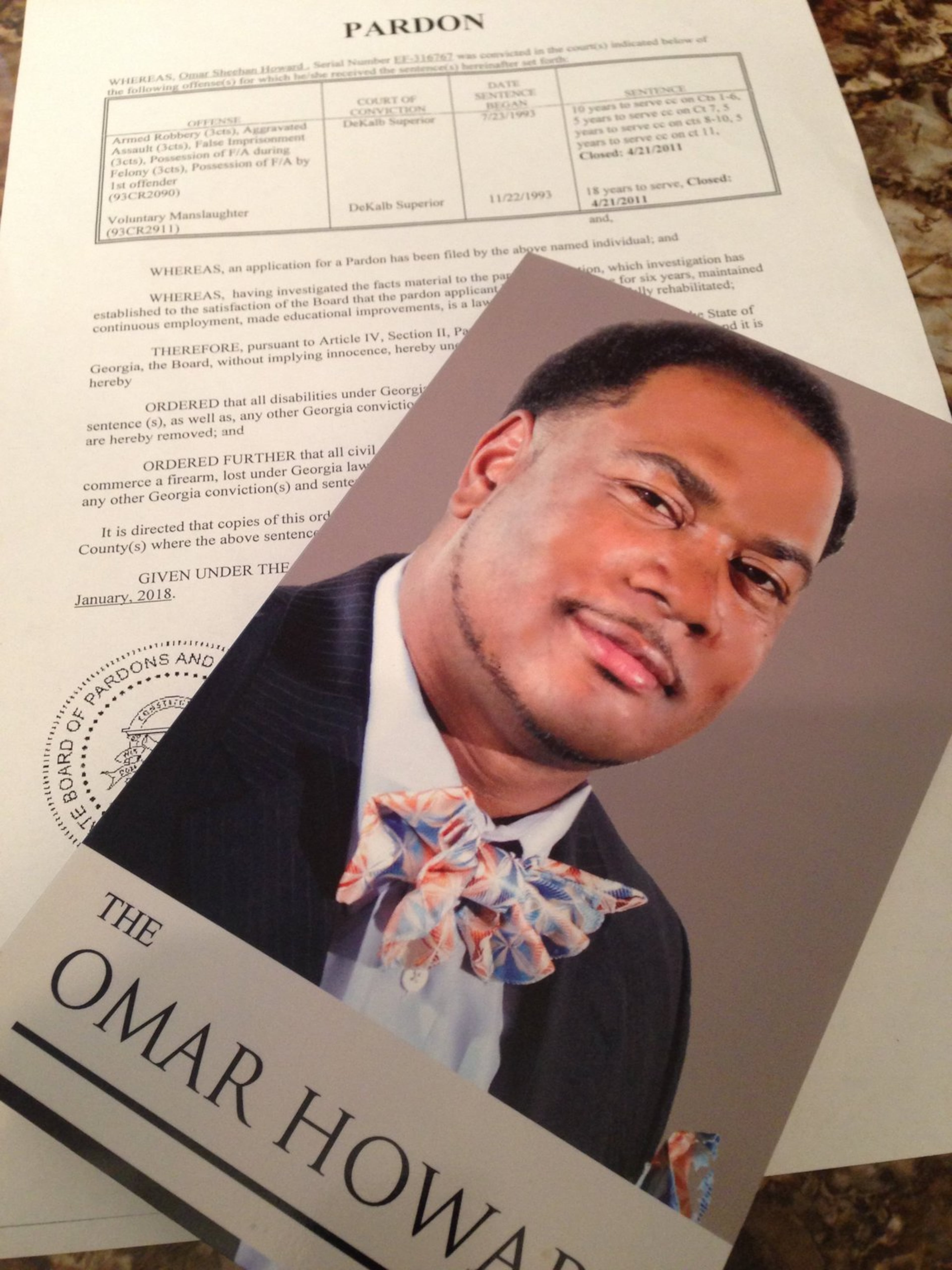This Life with Gracie: Prison chaplain gets a pardon

For a long time, Omar Howard had waited for his answer, but when it came, when he saw the letter from the Georgia Department of Pardons and Parole in his mailbox last week, he couldn’t bring himself to open it.
He was just too scared it was another “no,” and he’d grown tired of the rejection.
“I didn’t open it,” he said recently. “I kinda pulled it back and peeked inside …”
After his release from prison more than a decade ago, Howard, 43, tried everything in his power to put his life back together. Get a job. Find stable housing. For his efforts, he was given far more rejections than he cares to remember.
“A month ago, I couldn’t even drive for Uber because of my background,” he said. “I understand why. People don’t know me personally. They make decisions based on my background, and it’s heartbreaking.”
And yet by all accounts, Omar Howard was a changed man. Since 2010, he has served as chaplain of the Atlanta Transitional Center in Midtown. In 2011, he founded Freedom Is a Choice Inc., a mentoring program for at-risk teens. He's a featured speaker in the documentary "Released: When Does the Sentence End?" produced by the U.S. Attorney's Office of the Northern District and most recently Iyanla Vanzant's "Fix My Life" show. But none of that mattered. The long list of felonies on his record did.
Howard was just 15 when he started down that jagged path. He dropped out of school, and before you knew it, he’d gone from committing simple robbery to robbing people at gunpoint. By 1993, he had two sons to provide for, so he decided to do another hit with a group of friends. That one turned out badly.
Howard, then 18, was 15 feet away from the door when one of them accidentally shot the homeowner in the head, killing him.
For that, he was arrested and charged with multiple counts, including armed robbery and aggravated assault. Two months later, the murder charge in the death of Clarence Cooper was added.
Although he maintains his innocence in the murder and has since apologized to the family for his part in Cooper’s death, Howard accepted a plea deal and was sentenced to 18 years in prison.
In 2007, after years of writing letters to the parole board, he was finally released.
It was a heady moment. Howard felt grateful, but he was still a convicted felon.
He was forced to move back in with his mom. He worked several part-time jobs just to make ends meet. He felt out of sorts just trying to readjust to life on the outside.
His struggle might explain why prison reform became a major focal point for the Obama White House. As president, Barack Obama highlighted the need for prisoner re-entry programs focused on education, job training and housing.
“It’s not too late,” Obama was quoted telling a Rutgers University audience. “There are people who have gone through tough times, they’ve made mistakes, but with a little bit of help, they can get on the right path.”
RELATED | Georgia governor, federal prosecutor promote documentary on felons re-entering society
Howard had done that, but in 2015, when he applied for a pardon, the board did what most everyone else had done: They rejected him.
A year later on Dec. 16, 2016, he decided to try again. After all, things were starting to look up. He finally found a landlord willing to take a chance on him and a year and half ago, purchased a condominium in Decatur. He has written his memoir, “The Omar Howard Story.” And he’s a sought-after motivational speaker.
Still, when he pulled the letter from his mailbox last Thursday, his heart beat like crazy.
He peeled back a layer of paper and there it was: PARDON in all caps.

“My heart dropped,” he said. “I cried all that day and the next.”
He texted a photo of the letter to Andrea Shelton, founder of HeartBound Ministries, and one of his biggest supporters. She cried, too.
“When I looked at the list of crimes and saw the word PARDON, the verse ‘though your sins be as scarlet, they shall be white as snow’ came to mind,” Shelton said. “I’m ecstatic that Omar received a pardon from the state of Georgia, but I know that Omar received an eternal pardon a long time ago.”

With his pardon from the state, Howard’s crimes could no longer be used against him when he sought employment or housing, things we take for granted.
Shelton said that Howard has used every day of his post-incarceration life to right his wrongs and to help others from going down the same path toward incarceration.
“He is the poster child for rehabilitation,” she said. “He is a model citizen and a model man who is making an enormous difference in the lives of others both in and out of prison. “
Just days ago, Howard was still riding his emotional roller coaster.
“I hope this will be an inspiration to those who get out of prison to apply themselves and have the same opportunity,” he said. “I applied but it came with a lot of hard work. That’s not why I’ve done any of it, but it just fell in my favor and I’m grateful to the parole board for the opportunity. I want to honor that by continuing to serve the community.”


